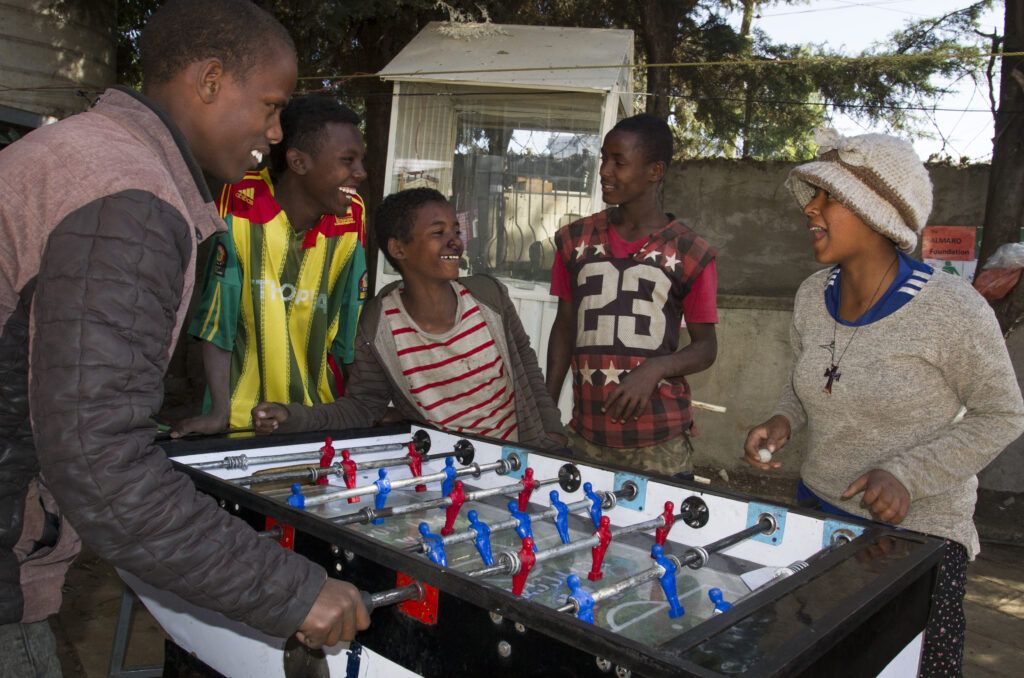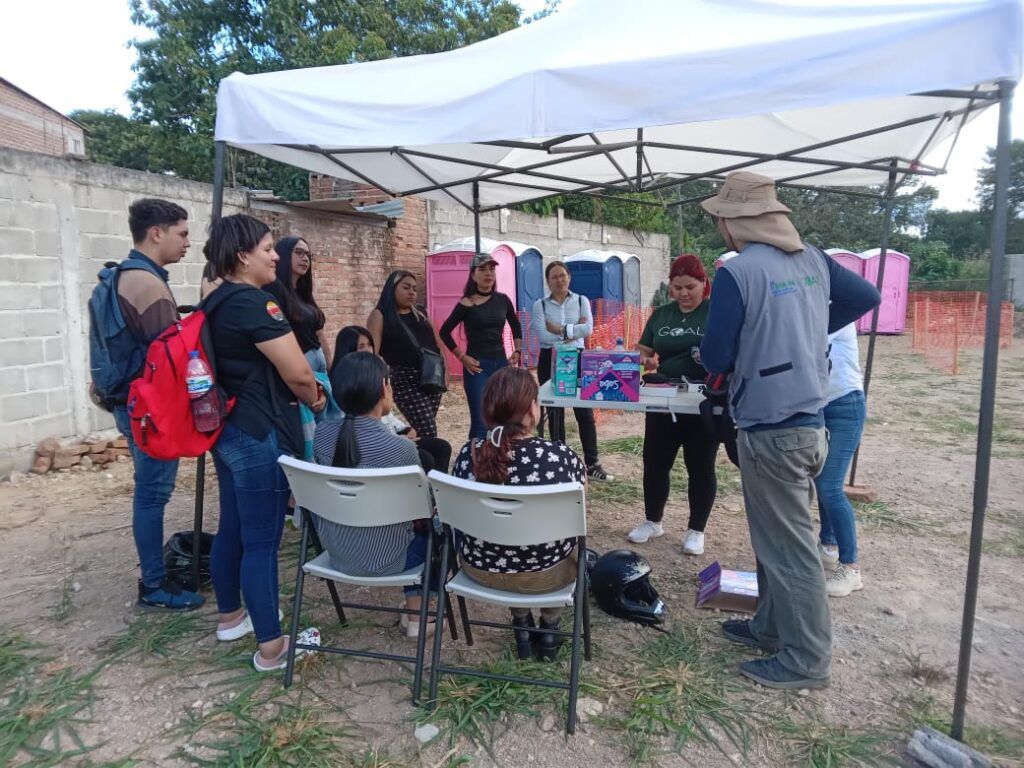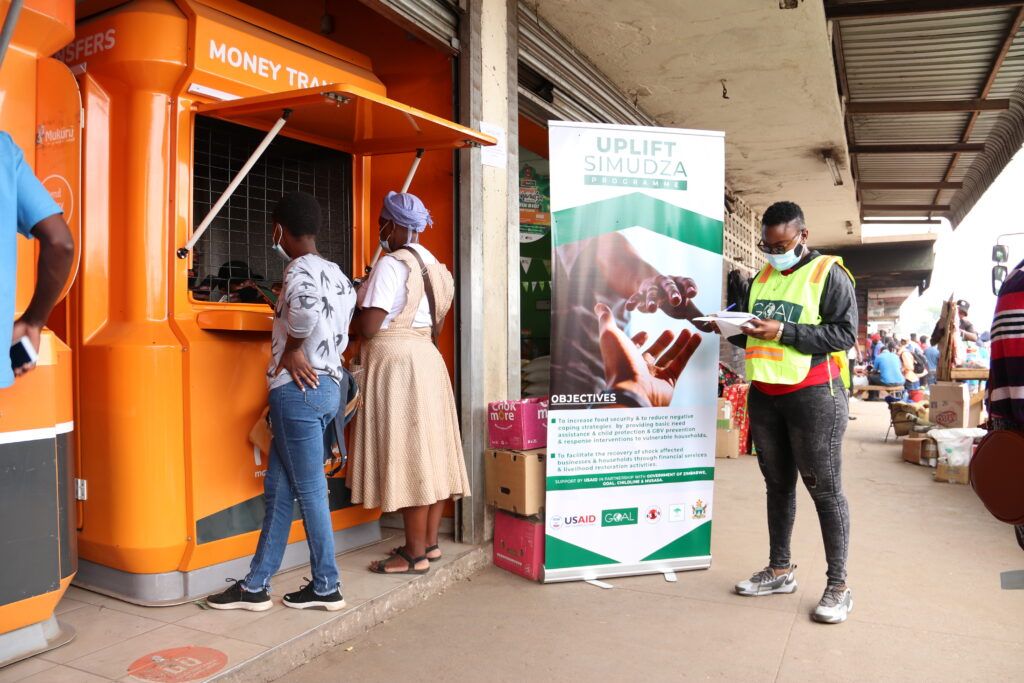 Blogs
Blogs
December 4, 2023 • 8 min read
As GOAL Global actively participates in the 16 Days of Activism, it reaffirms its commitment to fighting GBV globally. Through impactful programmes, partnerships, and advocacy efforts, GOAL stands firm in its mission to create a world where women and girls live free from violence.
The 16 Days of Activism against Gender-Based Violence (GBV), running from November 25th, the International Day for the Elimination of Violence against Women, to December 10th, Human Rights Day, is an annual global initiative highlighting that that violence against women is the most pervasive violation of human rights worldwide. This critical campaign was founded by activists at the inaugural Women’s Global Leadership Institute in 1991.
UNITE by 2030
Running parallel to this is the United Nations, “UNITE by 2030 to End Violence Against Women” campaign, launched in 2008 by the Secretary-General in support of 16 Days. This year’s UNITE theme is “UNITE! Invest to prevent violence against women and girls”. The campaign urges communities to share their efforts in ending violence against women and girls, demonstrating their commitment to a world free from such violence. It also encourages governments globally to reveal their investments in preventing GBV.
These efforts deeply align with GOAL’s mission of working with communities to help them respond and recover from humanitarian crises and assist them in building solutions to mitigate vulnerability.
Recognising the intricate links between GBV, crises and conflict, we understand the heightened vulnerability of women and girls in such situations, during which the risk of GBV regrettably increases. We are dedicated to collaborating with these communities to minimise the risk of, prevent and respond to GBV while also working to ensure that all our programming is Safe, Accountable and Inclusive – a strategic programmatic priority.
GBV in Conflict and Crises Contexts
During crises and conflict, the risk of GBV typically increases, including instances of sexual violence, forced marriages, and intimate partner violence. In many conflict contexts, up to 70% of women and girls experience GBV, compared to 35% worldwide, highlighting the impact of gender inequalities and the differentiated impacts of conflicts on women and girls.
In such conflict zones, essential services are limited, and women and girls who have experienced GBV become more vulnerable to isolation and lack of support.
GOAL Chair of the Irish Consortium on Gender-Based Violence
GOAL’s commitment to the mitigation and eradication of GBV is demonstrated in our current Chairing of the Irish Consortium on Gender-Based Violence (ICGBV), an alliance of 12 Irish human rights, humanitarian and development organisations, Irish Aid and the Irish Defence Forces. GOAL will host the Consortium for a two-year term—this prestigious role positions GOAL, in a facilitatory capacity, at the forefront of international efforts to combat GBV.
GOAL’s Commitment to Tackling GBV
Acknowledging the gravity of GBV, GOAL systematically integrates initiatives to address it across all our program sectors.
Our work in addressing GBV involves preventing GBV, reducing exposure risk, and providing support in response to GBV instances.
Through a comprehensive programme approach spanning all 14 operational countries, GOAL actively works to address GBV. Here, we highlight a few examples of these innovative initiatives from four of our programmes in Ethiopia, Honduras, Sierra Leone and Zimbabwe.
Ethiopia:
In Ethiopia, GOAL’s protection staff implement community-based integrated GBV, child protection, and psychosocial support activities. We have helped establish referral pathways, provided cash support for survivors, and set up safe, women-friendly spaces, contributing to the holistic well-being of affected communities.
Our GOAL Ethiopia programme also has a strong focus on supporting homeless youth, providing them with safe spaces, essential services such as sanitation, education and counselling, as well as psychosocial support that works to address the challenges faced by youth living on the streets who are vulnerable to GBV. In 2022 alone, GOAL reached over 470,000 people in Ethiopia, mainly children and youth, with protection and inclusion programming.

Children playing at GOAL’s ChildSPACE programme
Read more about our Ethiopia programming here.
Honduras:
Collaborating with the GBV Sub-Cluster, GOAL Honduras supported the development of the GBV Alert System to identify and respond to GBV risks within communities. This innovative approach enhances understanding and facilitates targeted prevention and response efforts. In response to the migration crises in Central America, GOAL assists vulnerable and displaced communities, recognising their heightened susceptibility to GBV while travelling along migration routes in the region.
In 2023, over 248,000 people entered Honduras through Danlí en route to the United States. To support these migrants, GOAL partnered with Start Network to provide psychosocial support and access to water to people forced to flee their homes, travelling on this dangerous journey.

Honduras Start Fund Dignity Kit Distribution
Read more about our Honduras programme here.
Sierra Leone:
In Sierra Leone, GOAL has been actively involved in initiatives such as the “Hands off our Girls” campaign, which was launched in 2018 by Fatima Maada Bio, first lady of Sierra Leone.
‘The initiative seeks to heighten awareness and influence policies on child sexual abuse and exploitation, including child marriage and GBV, which are contributing factors towards Sierra Leone’s high adolescent maternal mortality rate. On International Women’s Day 2023, the First Lady hosted an event engaging male adolescents to influence the behaviour of boys and young men when interacting with young girls.
James Riak, GOAL Sierra Leone’s Country Director, was among the key speakers at the high-level sensitisation session. James reiterated GOAL’s commitment to empowering women and promoting gender equity and pledged GOAL’s continued support of the Hands Off Our Girls campaign. He also urged those present to celebrate the achievements already made in addressing the cultural practices and norms that lead to GBV, discrimination against women, and child marriage in Sierra Leone.
GOAL also works closely with national and local government actors to deliver adolescent sexual and reproductive health programming in Sierra Leone, including the Ministry of Health and Sanitation and the National Secretariat for the Reduction of Teenage Pregnancy.
GOAL Sierra Leone’s Adolescent Sexual and Reproductive Health program has brought significant positive changes. It addresses social norms, reduces stigma, and empowers adolescents to advocate for improved services and societal change, including those related to GBV. The program employs various interventions that have contributed to a reduction in adolescent pregnancies and maternal deaths.
Read more about our Sierra Leone programme here.
Zimbabwe:
GOAL’s work in Zimbabwe seeks to transform harmful social and gender norms contributing to GBV. With support from Irish Aid, GOAL is implementing the Gender Action Learning System (GALS).
This approach uses participatory processes to enable household members to negotiate their needs and interests to find innovative, gender-equitable livelihood planning and intervention solutions. GALS has also identified GBV as having adverse consequences on livelihoods, economics, and food security. Community members have developed commitments and actions to address GBV, household decision-making, ownership and control of resources, and division of labour in their households and communities.
Inclusive Programming
As part of its work on GALS, GOAL Zimbabwe recognises the importance of engaging with men and boys not merely as perpetrators but as allies and survivors of GBV. Understanding the evolving role of men in society, including the changing concept of masculinities, is crucial to GOAL Zimbabwe’s efforts to prevent and respond to GBV.
Working with Partners
GOAL, together with its locally-led NGO partners specialising in GBV, including Childline, Musasa, and Padare Men’s Forum on Gender, supports initiatives that challenge harmful norms and values that perpetuate GBV. GOAL’s UPLIFT programme, supported by USAID, places a significant emphasis on protecting individuals from GBV.
As a result, the programme has been instrumental in the fight against GBV by providing various response services, including safe shelters for those who lack support systems from family or community and require protection from perpetrators. Additionally, UPLIFT offers legal, medical and psychosocial counselling support to aid affected individuals. Additional support has included emergency cash given to identified women and survivors so they can access essential emergency legal and medical services promptly.
GOAL’s partners collaborate closely with key stakeholders and participants in the referral process, including healthcare facilities, the Victim Friendly Unit, the courts, and government ministries such as the Ministry of Women Affairs and the Department of Social Development. From May 2021 to August 2023, GOAL, and its partners, Musasa and Childline, supported over 300 female survivors with shelter support under the UPLIFT Project.
These survivors accessed timely medical, legal and psychosocial support as needed. Over 1,500 survivors accessed legal services, which is a critical component in ensuring access to justice for survivors of GBV. The survivors accessed a comprehensive package of GBV care assistance, which included counselling, basic legal support, cognitive behavioural therapy, coordinated referrals, shelter and post-care support.

GOAL Zimbabwe Sustainable Livelihoods Uplift Simudza
Read more about our Zimbabwe programme here
As GOAL Global actively participates in the 16 Days of Activism, it reaffirms its commitment to fighting GBV globally. Through impactful programmes, partnerships, and advocacy efforts, GOAL stands firm in its mission to create a world where women and girls live free from violence. The Chairing of the ICGBV further strengthens GOAL’s position as a facilitator of dialogue and action against GBV, emphasising the importance of collaborative action in achieving lasting change.
